Force acting on a particle moving in the x-y plane is →F=(y2ˆi+xˆj)N, x and y are in metre. As shown in figure, the particle moves from the origin O to point A (6m,6m). The figure shows three paths, OLA, OMA, and OA for the motion of the particle from O to A.
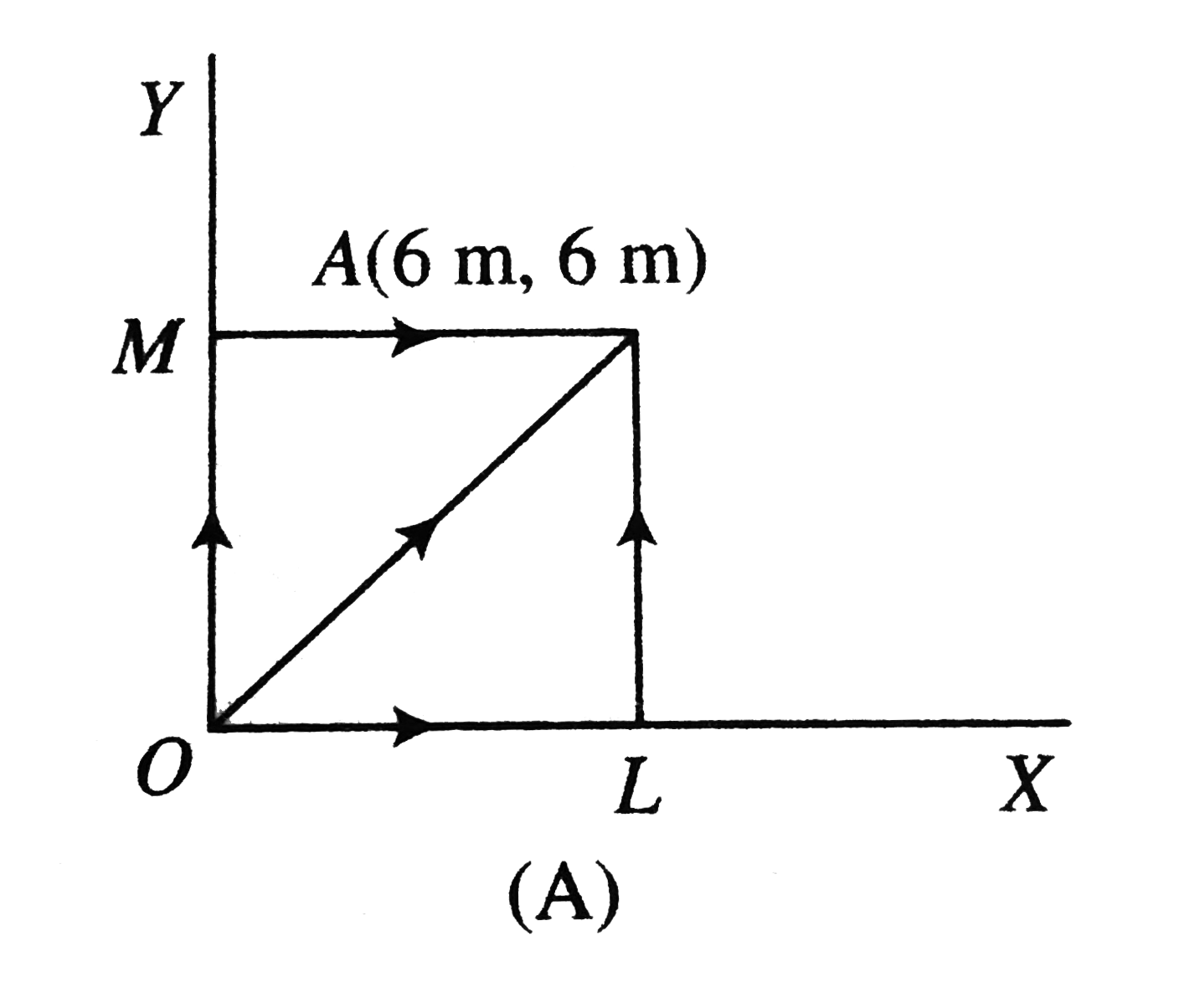
Which of the following is correct?
There is equal probability for the force being conservative or non-conservative.
Conservative or non-conservative nature of force cannot be prediced on the basis of given information
The given force is non-conservative
The force is conservative
The correct Answer is:C
work denpends upon the path so it's non conservasted.
Topper's Solved these Questions
- BOOK - NARAYNACHAPTER - WORK POWER AND ENERGYEXERCISE - Level-V (Integer)5videos
WORK POWER AND ENERGY
- BOOK - NARAYNACHAPTER - WORK POWER AND ENERGYEXERCISE - Level-VI (Single Answer)31videos
WORK POWER AND ENERGY
- BOOK - NARAYNACHAPTER - WORK POWER AND ENERGYEXERCISE - Level-V (Multiple Answer)13videos
WORK POWER AND ENERGY
- BOOK - NARAYNACHAPTER - WORK , ENERGY & POWER EXERCISE - EXERCISE IV43videos
WORK , ENERGY & POWER
Similar Questions
A force acting on a particle moving in the x-y plane is given by →F=(2yˆi+x2ˆj)N, where x and y are in meters. The particle moves from the origin to a final position having coordinates x=5.00m as shown in figure. Calculate the work done by →F on the particle as it moves along (a) OAC, (b) OBC, and (c) OC. (d) Is →F conservative or non-conservative? Explain.
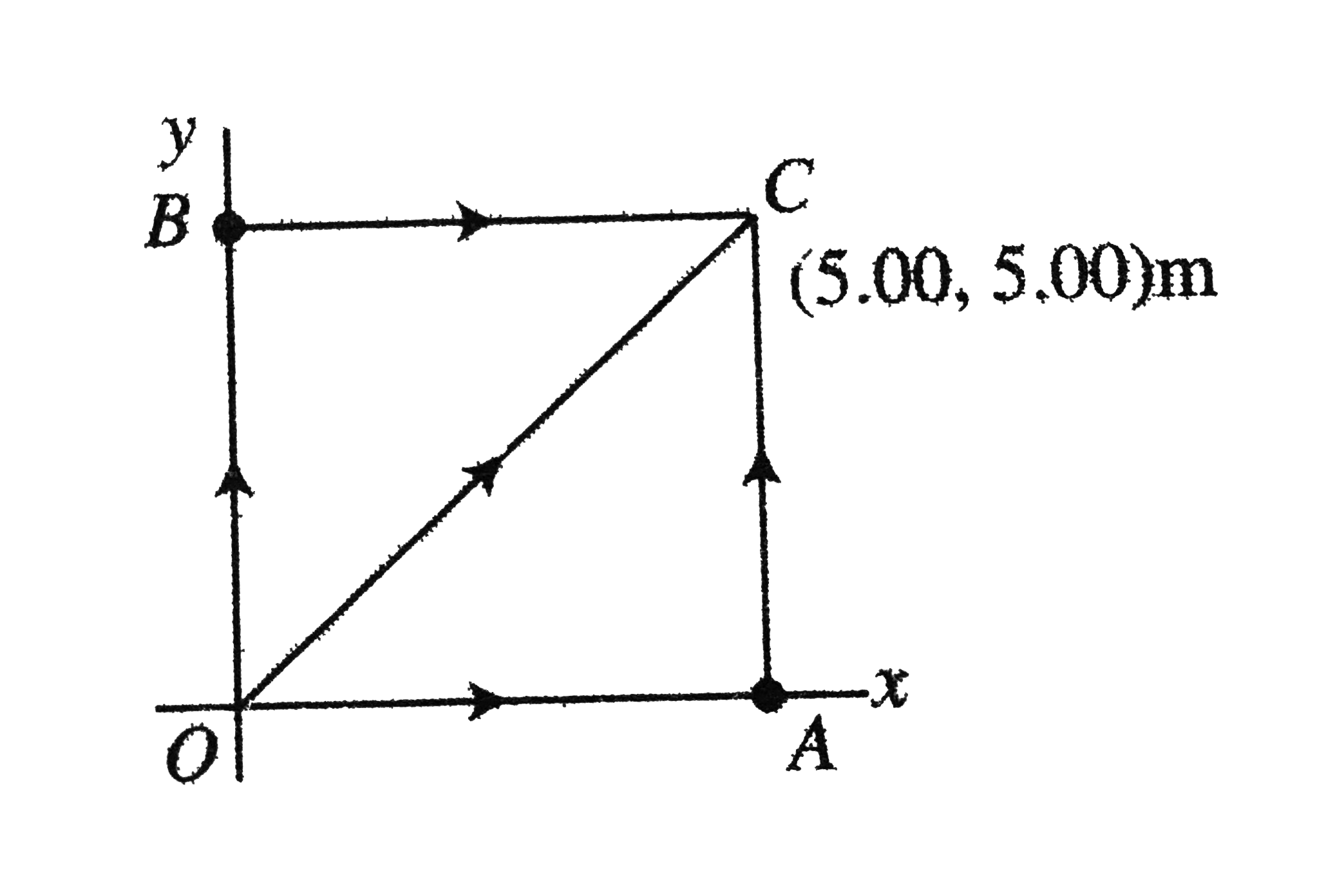 View Solution
View SolutionThe potential energy of a particle of mass 5 kg moving in the x−y plane is given by U=(−7x+24y)J, where x and y are given in metre. If the particle starts from rest, from the origin, then the speed of the particle at t=2s is
View Solution
Knowledge Check
- Question 1 - Select One
Force acting on a particle moving in the x-y plane is →F=(y2ˆi+xˆj)N, x and y are in metre. As shown in figure, the particle moves from the origin O to point A (6m,6m). The figure shows three paths, OLA, OMA, and OA for the motion of the particle from O to A.
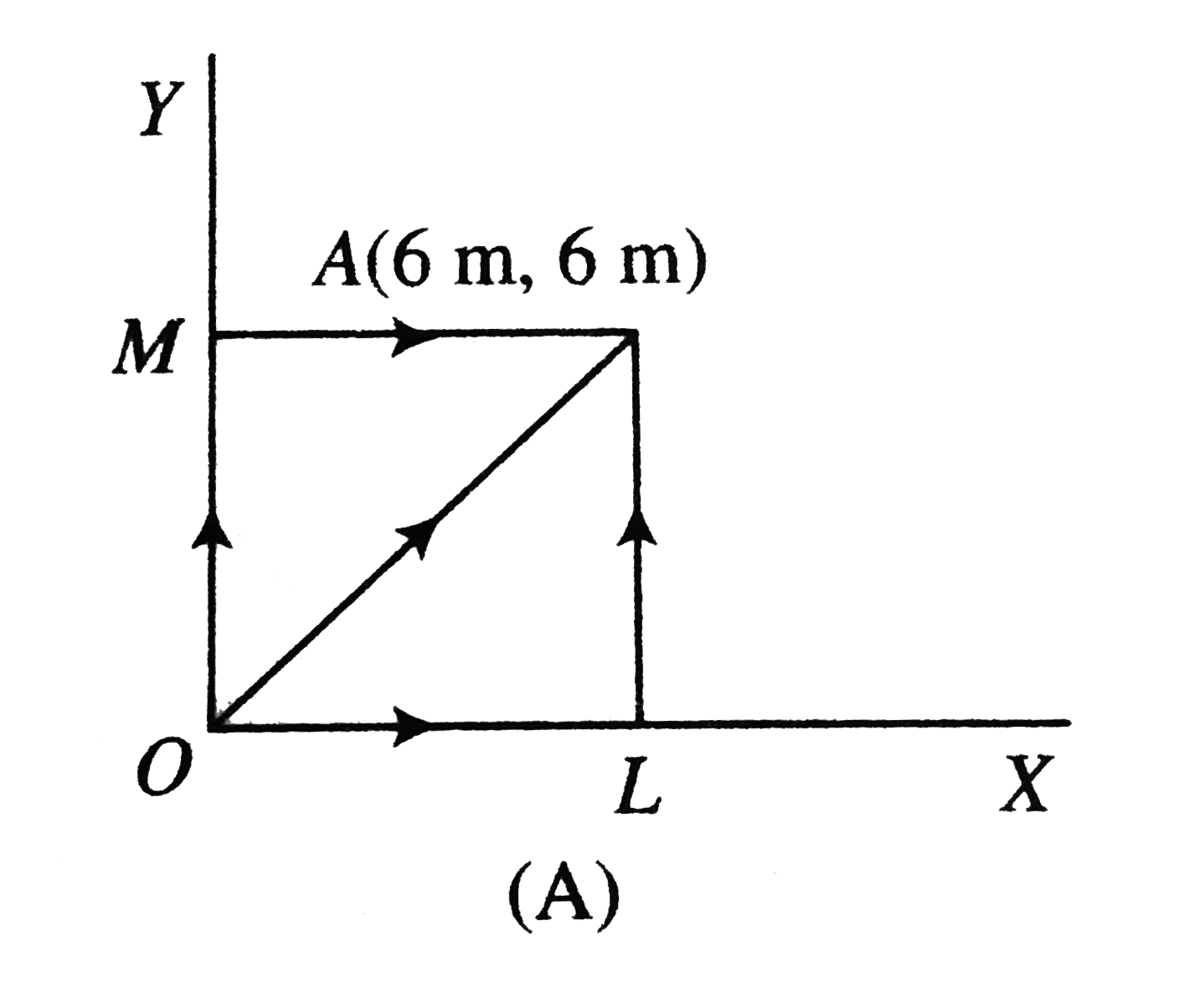
Work done for motion along path OA is nearly
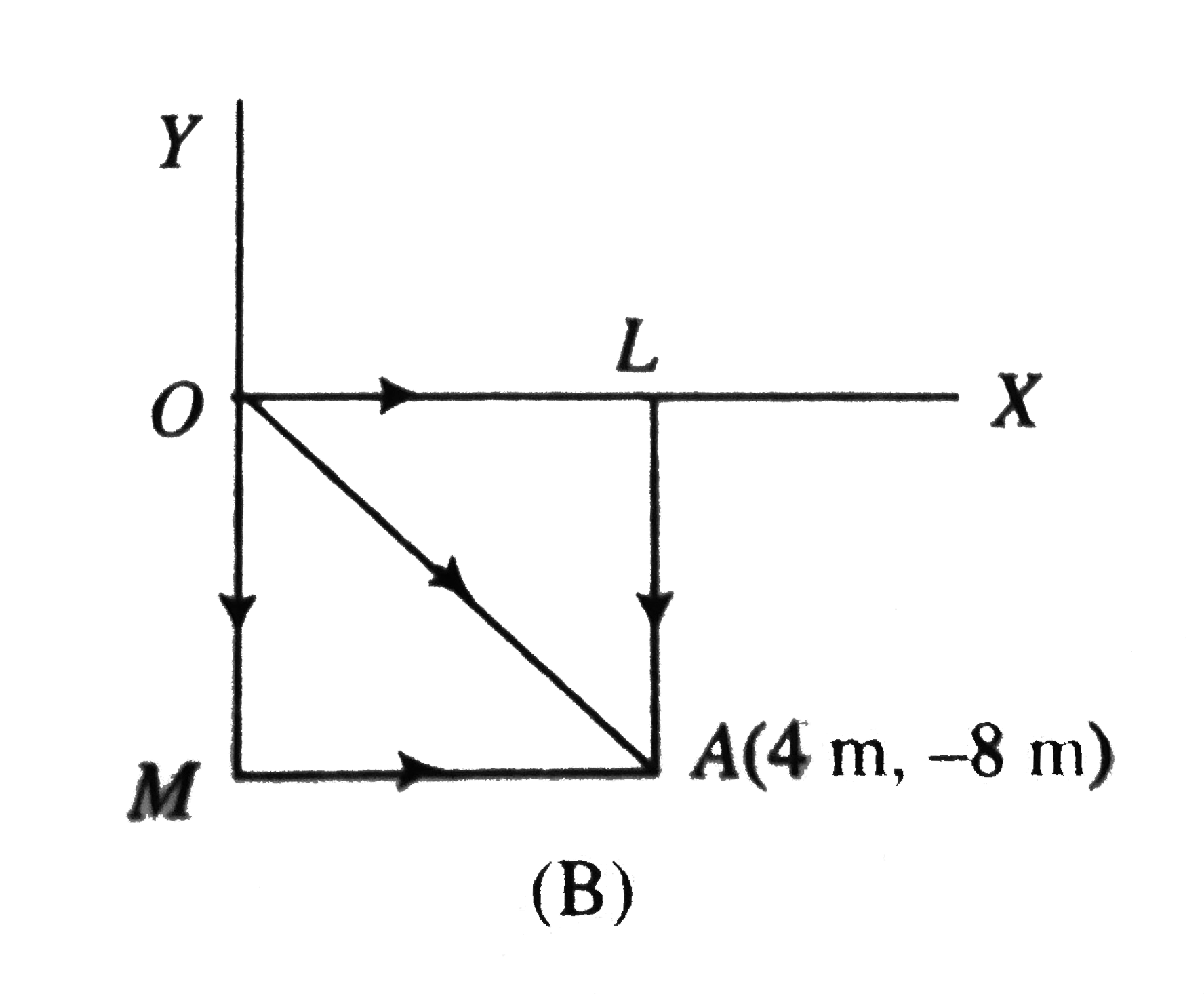 A(a) 383JB(b) 90JC(c) 180JD(d) None of these
A(a) 383JB(b) 90JC(c) 180JD(d) None of these - Question 2 - Select One
Force acting on a particle moving in the x-y plane is →F=(y2ˆi+xˆj)N, x and y are in metre. As shown in figure, the particle moves from the origin O to point A (6m,6m). The figure shows three paths, OLA, OMA, and OA for the motion of the particle from O to A.
Now consider another situation. A force →F=(4ˆi+3ˆj)N acts on a particle of mass 2kg. The particle under the action of this force moves from the origin to a point A (4m,−8m). Initial speed of the particle, i.e., its speed at the origin is 2√6ms−1. Figure shows three paths for the motion of the particle from O to A.
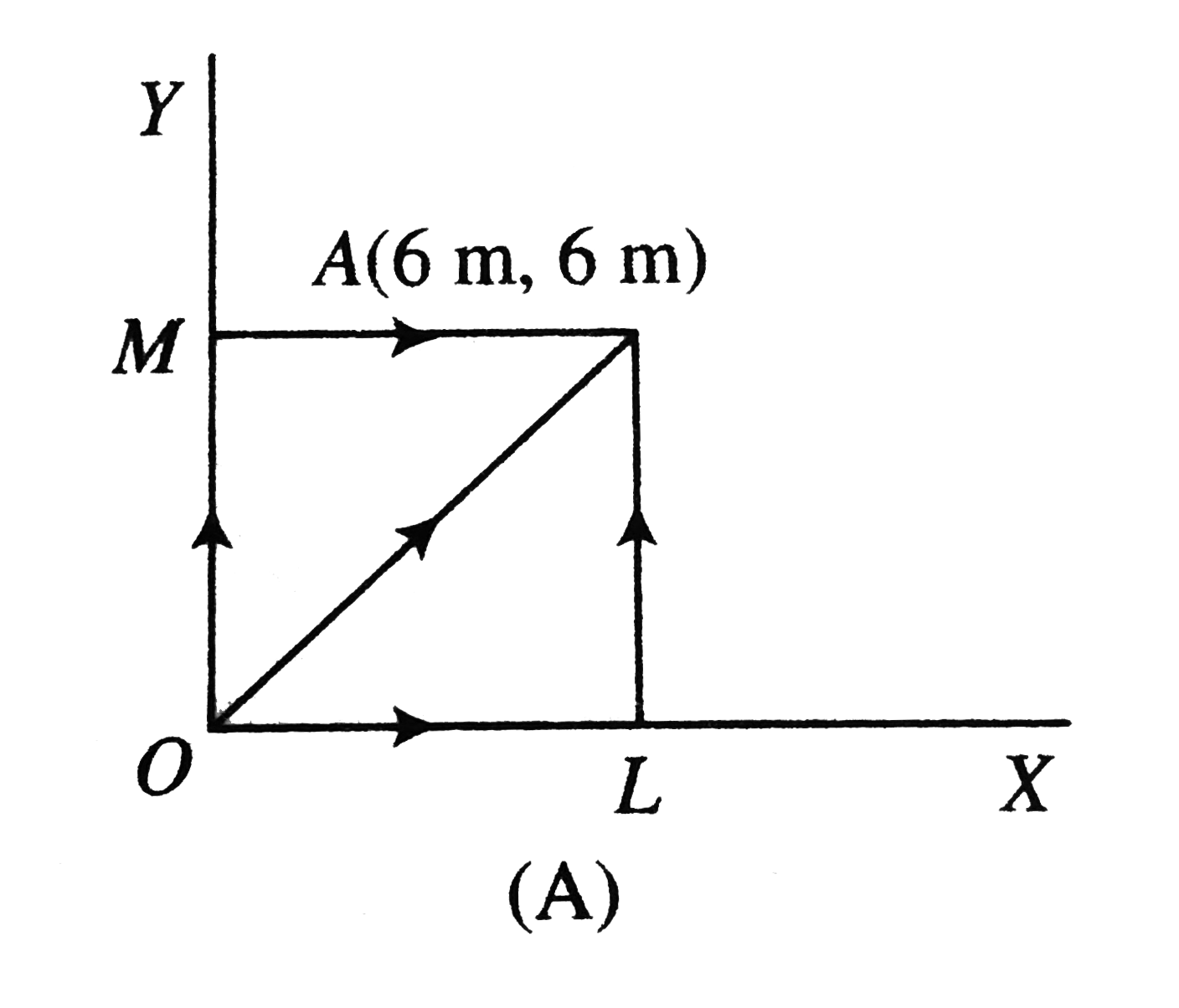
If the potential energy at O is 16J, the potential energy at A will beA(a) 14.5JB(b) 32JC(c) 24JD(d) 40J - Question 3 - Select One
Force acting on a particle moving in the x-y plane is →F=(y2ˆi+xˆj)N, x and y are in metre. As shown in figure, the particle moves from the origin O to point A (6m,6m). The figure shows three paths, OLA, OMA, and OA for the motion of the particle from O to A.
Now consider another situation. A force →F=(4ˆi+3ˆj)N acts on a particle of mass 2kg. The particle under the action of this force moves from the origin to a point A (4m,−8m). Initial speed of the particle, i.e., its speed at the origin is 2√6ms−1. Figure shows three paths for the motion of the particle from O to A.
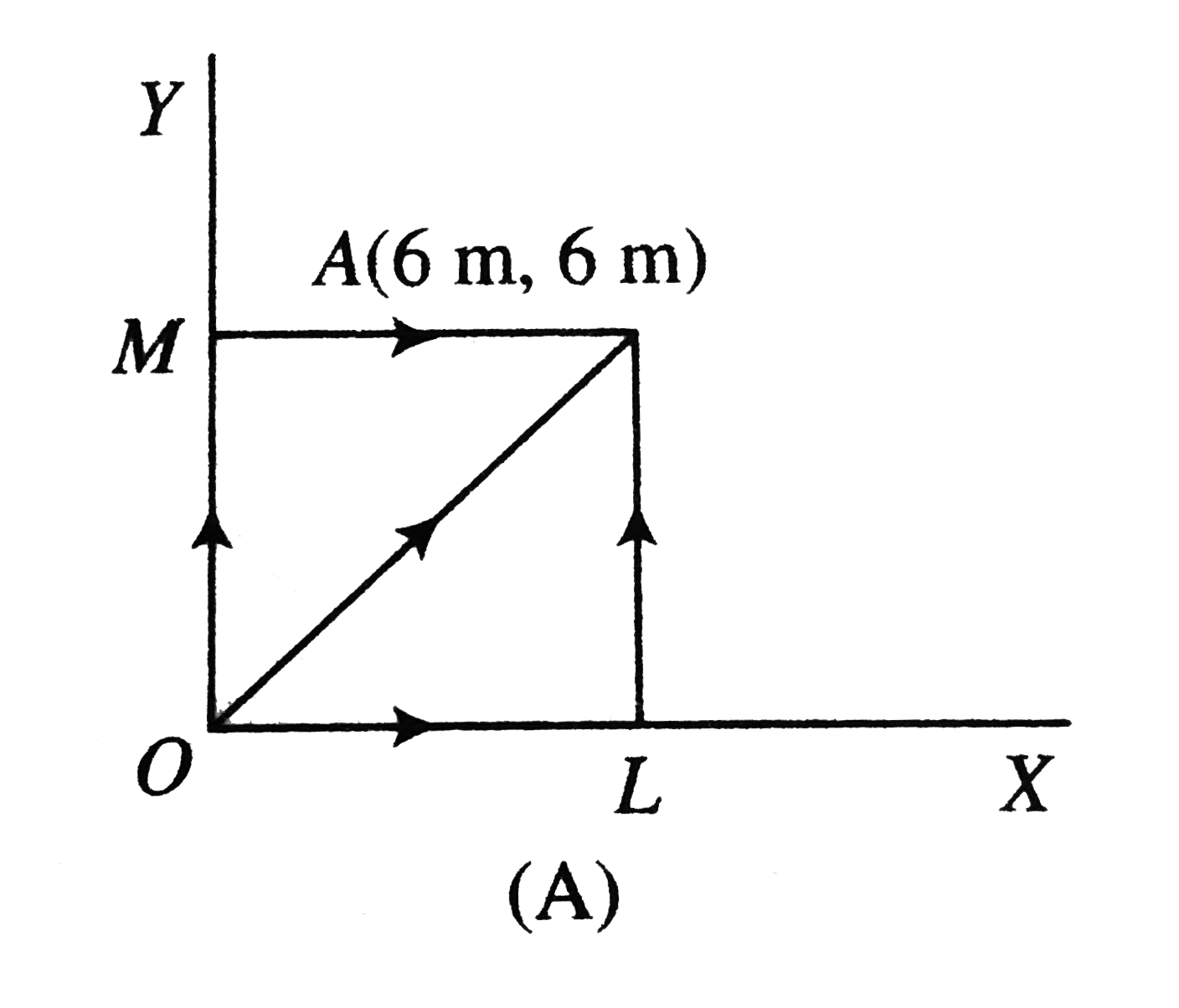
Speed of the particle at A will be nearlyA(a) 4.0ms−1B(b) 2.8ms−1C(c) 3.6ms−1D(d) 5.6ms−1
Force acting on a particle moving in the x−y plane is →F=(y2ˆi+xˆj)N,x and y are in metre. As shown in fig. the particle moves from the origin O to point A(6m,6m). The figure shows three paths, OLA,OMA and OA for the motion of the particle from O to A.
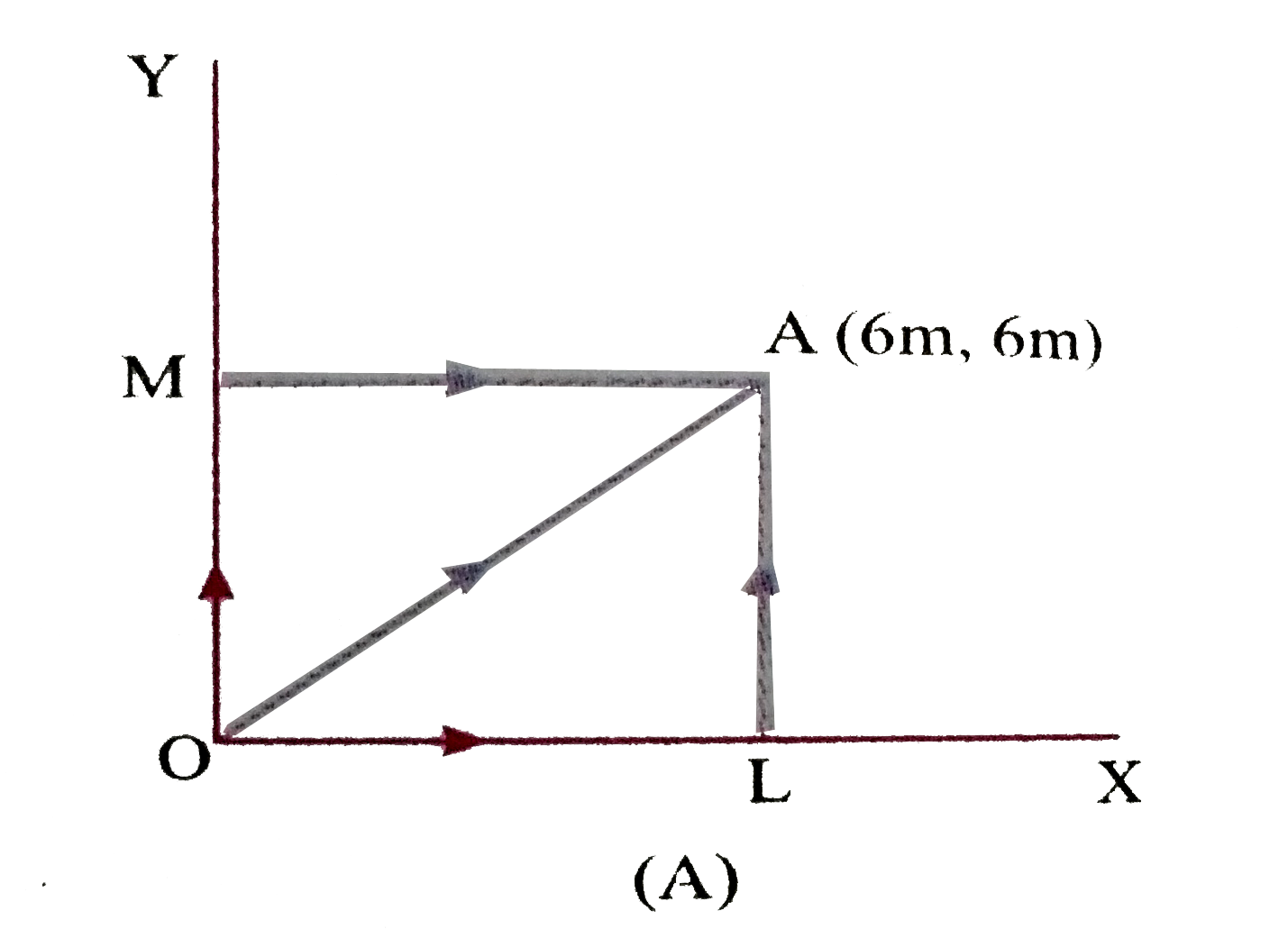
Along which of the three paths is the work done maximum.View SolutionForce acting on a particle moving in the x−y plane is →F=(y2ˆi+xˆj)N,x and y are in metre. As shown in fig. the particle moves from the origin O to point A(6m,6m). The figure shows three paths, OLA,OMA and OA for the motion of the particle from O to A.
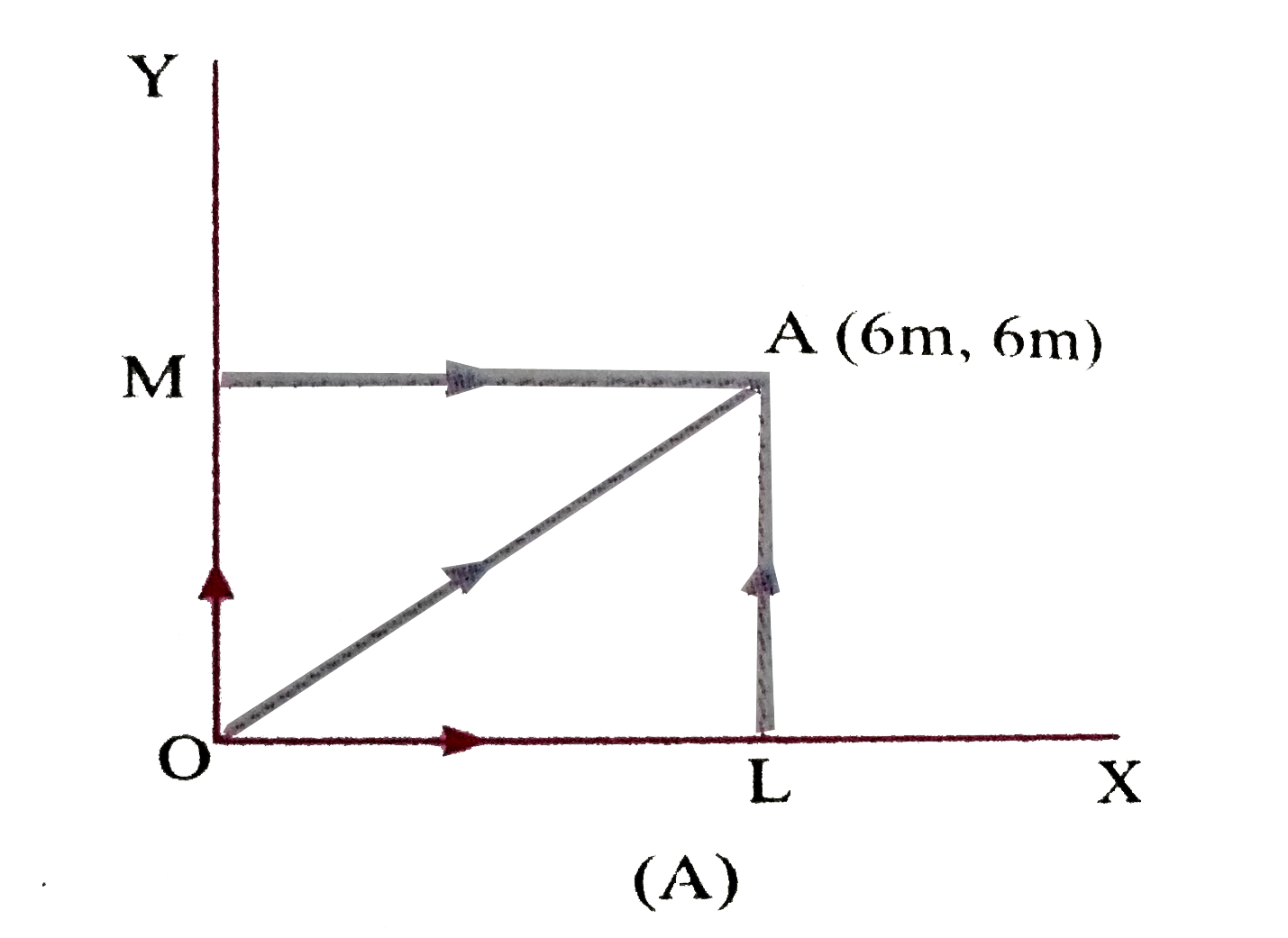
Work done for motion along path OA is nearlyView SolutionA force acting on particle is given by →F=(3x2ˆi+4yˆj)N. The change in kinetic energy of particle as it moves from (0,2m) to (1m,3m) is
View SolutionA particle moves in the x−y the accoding to the equatio, r=(ˆi+2ˆj)Acosωt. The motion of the particle is
View SolutionThe potential energy of a particle of mass 5 kg moving in the x-y plane is given by U=(−7x+24y)J,xandy being in metre. If the particle starts from origin, then the speed of particle at t = 2 s is
View Solution

